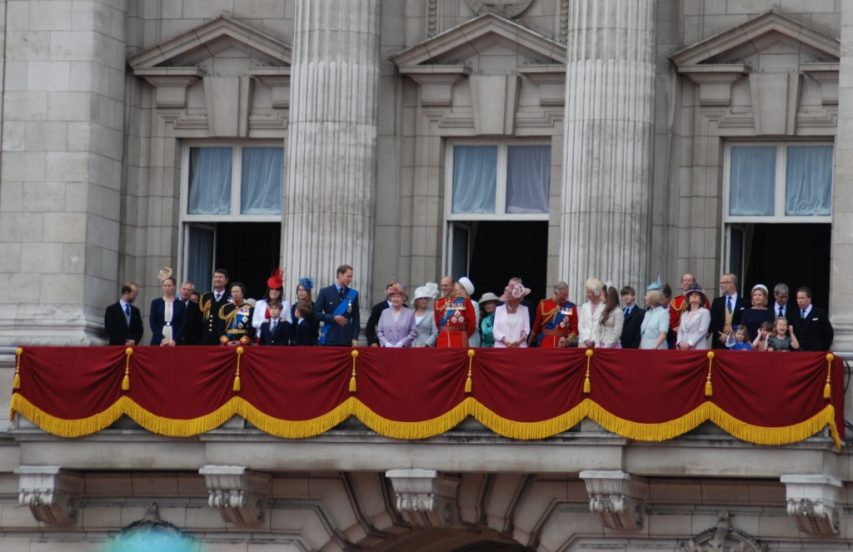At UnHerd, Douglas Murray discusses membership in the (extended) royal family as a “predicament”:

The royal family at Buckingham Palace for the Trooping of the Colour 2010, 30 June, 2015.
Photo by Robert Payne via Wikimedia Commons.
There is a line in Alan Bennett’s play The Madness of George III which is so good that the makers of The Crown lifted it — without attribution — in their most recent season. The heir to the throne, waiting for Parliament to declare him regent, says that to be Prince of Wales is not a position: “It is a predicament.”
Whether or not that is the case for the current Prince of Wales, it is certainly true for the Sussexes, who have just announced that they are going to step back from public duties in order to become “financially independent”.
Even the most devout republican will recognise that there is something worse than the now-defunct Civil List; something undisguisably worse than members of the Royal Family receiving public subsidy. It is the predicament of Royal privilege.
Such is the cruelty of public life, that people born into a position of undeniable privilege are rewarded — or revenged — by being placed into an impossible situation. If a prince or princess is carrying out public duties, but also having the occasional moment of private enjoyment, they will be lambasted by the press for freeloading and gallivanting on the public’s dime. If they decide to relieve the strains on the public coffers by accepting the largesse of some wealthy individuals, then the same press will attack said royal for freeloading on someone else’s dime, and being caught up with sleazy or shallow celebrity characters.
There is a way out, of course, one demonstrated by Her Majesty the Queen throughout her public life, which has been to doggedly and dutifully carry out an unceasing round of obligations for so many years that in her tenth decade of service, no reasonable person could begrudge her the occasional day off.
But the head of the family is at an advantage. That role is well defined. It is the other royals — especially the “minor royals” — who find themselves in the worst situation. True, there are people — almost everybody else on earth if it comes to that — who are in a materially worse position. But in terms of being born into a difficult role, being born a non-monarch in the royal family must count as among the most impossible to carry out.
In the 1990s, when the Civil List was whittled down, we were given an inkling of how the Sussex situation might play out. Members of the Royal Family, such as the Michaels of Kent, were suddenly expected to strike out on their own; forced to sell their home while the press enjoyed ogling at their embarrassment. When the Michaels had an attic sale, they were attacked for cheapening themselves and the Royal Family by auctioning their possessions. They then attempted to make money through various forms of consultancy and authorship, but every way they turned they were accused of using their position to “cash in”. What else were they to do, though? What other commodity — other than royalty — did they have?



